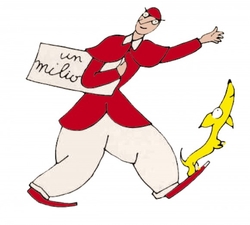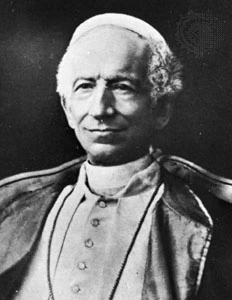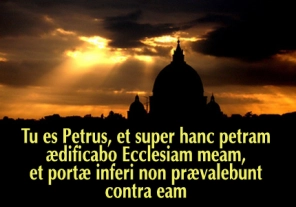Daily Archives: June 5, 2015
Latin Mass, Or: In Praise Of The Woman Peasant.
I have read somewhere around (I forget where) that Italians had a traditionally higher acceptance for the Latin Mass, because the language was easier for them to understand. I beg to differ, and would like to make some additional observations on the matter.
Latin is as similar to Italian as French; or you could say, as English is to German. Many words have the same roots, and Italian friends of mine visiting me in Germany could pick an awful lot of words from daily life because of their similarity to the English version (water/Wasser; bear/Baer, warm/warm, cold/kalt, and countless others). Still, on hearing someone speaking in German exactly the same night fell over them than the Italian would experience on hearing the Latin Mass. In fact, expressions like “this is Latin to me” are commonly used in the same sense as the English “this is Chinese to me”, meaning: can't understand a word of it.
No. Latin is, to every Italian who has not learned it, a foreign language like, say, French or Portuguese (not Spanish, though; not even close). Why, then, was Latin so universally and readily accepted?
The answer is simple: Catholicism; or, if you wish, obedience.
The uneducated woman who prayed her rosary during Mass, or was simply content to stay there and listen, or perhaps had access to a Latin-Italian Missal was much smarter than many a village pharmacist, or country doctor, or educated landowner – all very fit in Latin and Greek, no doubt; and History, and Philosophy – in this: that she had the humility to accept what the Church gives to her.
Not for her to question whether the Mass is suitable to her. Not for her to wonder whether this strange language “hurts” her “feelings”, in that it makes her feel “excluded”. Not for her to demand that the Church changes the Mass making of it something she can “relate to”.
In those times, people did not put themselves at the centre of the Universe. There, they put God. If they were of humble condition, this helped them to carry their condition, in devout humility, over to the spiritual sphere. The Latin Mass was for them, in the same way as the weather or the seasons, part of the God-given order of things. They may not have understood a word of it (it was, actually, “Latin to them”), but they knew it was good for them, and exactly how things have to be.
How smart, how soundly and robustly orthodox this humble thinking is! Much, much smarter than being educated, and to abuse this education to question the things of heaven, or the way the things of heaven are carried on here on this earth.
The same peasant woman must have been shocked at being told that heaven would now come down to earth and lower itself to her; that the Mass would now be in Italian, so that she can “understand”; that she was too dumb to cope with a more elevated reality than herself, and therefore this reality would be dumbed down so she can reach it, touch it, and have a chat with it, courtesy of people with less faith than she had in her little finger.
But you see, the peasant woman was smart enough as she was: she could cope perfectly well with the supernatural nature of the Mass; she was too smart to refuse a mystery just because she could not understand it; she welcomed the contact, and be it from somewhat afar, of a reality so much bigger than herself; she was content enough at this supernatural reality being made accessible for her in the ways the Lord had disposed. If she felt she was very little, it was because she was smart enough to understand she was, and to understand we all are.
Obedience. Submission. Humbleness. This is the way to heaven. Knowledge that leads one to question truth isn't wisdom, but foolishness. It is better for one to be born, live and die a humble peasant who gets the truth, than to become an extremely learned man who questions it.
This is, I think, why those peasants not only accepted, but loved that incomprehensible mass they listened to every day. When a glimpse of heaven descended down to them and revealed itself to them with a great miracle they did not demand that it adapt to them, and they fully understood the importance and the sacredness of the miracle. They were, possibly, even helped to better understand that sacredness by the very fact that they could not understand the language. It told them, in a simple way, that the Mass is from heaven.
When they died, those humble peasants had, in most cases, far better cards than those who had misdirected their intelligence or their education, and made of them harmful tools directly endangering their salvation.
Education is good, of course. Intelligence can do wondrous work for God. But a Christian must direct all his gifts to the right aim. The man – no matter how educated – abusing his education to question Truth is akin to an ant considered very smart by her fellow ants, and doubting the existence of the Milky Way.
And the funniest thing of them all is that nowadays – in times of mass “higher education” that does not even manage to give basic literacy skills – a lot of people think themselves educated, but are little above illiterate peasants anyway.
M



















